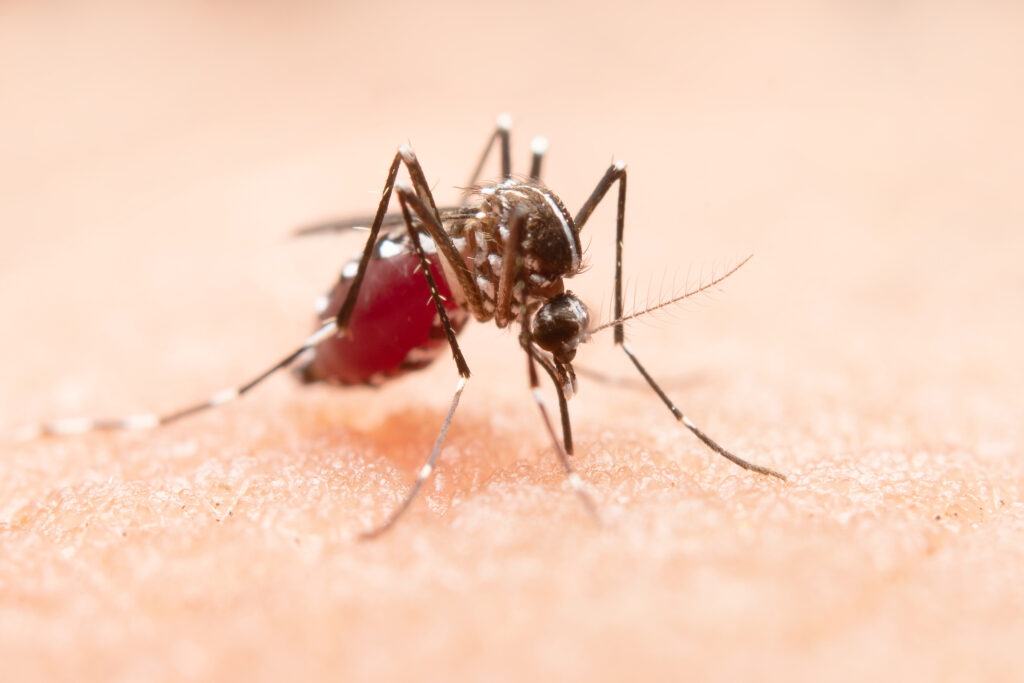What Are Mosquitos
Mosquitos
Persistent Biters That Thrive Around You
Mosquitoes are small, flying insects that feed on human blood and breed in standing water. In Oman’s warm and humid climate, especially in places like Muscat, Salalah, and Sohar, mosquito activity increases during and after rainfall. They hide in shaded areas, drains, gardens, and indoor corners, becoming most active around dawn and dusk. Their bites cause itching and discomfort, and some species can transmit diseases, making mosquito control an important health measure.

Are Mosquitoes Common in Oman?
Yes. Mosquitoes are widespread across Oman, especially during warmer months and after rainfall. They are commonly found near standing water, gardens, and poorly drained areas. In addition to being a nuisance, some mosquito species in Oman can transmit diseases such as dengue, chikungunya, and malaria, making prevention and control essential.
What Attracts Mosquitoes?
Mosquitoes are attracted to moisture, body heat, and carbon dioxide. In Oman, the most common causes of mosquito infestations include:
Standing water in buckets, flowerpots, or drains
Poorly maintained gardens and irrigation systems
Accumulated rainwater on rooftops or construction sites
Septic tanks or open water tanks
Human scent, sweat, and exhaled breath
How to Identify Mosquito Activity
Signs include buzzing sounds near ears, itchy red bites on exposed skin, and visible swarms near water sources at dawn or dusk. You may also notice larvae (wigglers) in stagnant water or adult mosquitoes resting on walls, ceilings, or shaded areas.
Types of Mosquitoes Found in Oman
Common mosquito species in Oman include the Aedes aegypti (known for spreading dengue), Culex quinquefasciatus (common house mosquito), and Anopheles species (which can transmit malaria). Each type varies in breeding habits and peak activity times but all thrive in warm, humid environments.
How to Prevent Mosquitoes in Oman
Remove standing water from containers, gutters, and plant trays
Use mosquito screens on windows and doors
Apply insect repellent and wear long sleeves outdoors
Maintain gardens and fix drainage issues
Schedule professional fogging. Regular treatments help reduce breeding
Pest Guide
Learn more about the different pests and the problems associated with them.
Services
Explore the different ways we can help you with your pest problems!
Mosquitos FAQs
Are Mosquitoes a Big Problem in Oman?
Yes. Mosquitoes are common in Oman, especially during humid months and in areas with standing water. Salalah sees high activity during the Khareef season due to rainfall.
What Attracts Mosquitoes?
Mosquitoes are drawn to body heat, sweat, carbon dioxide, and stagnant water. Buckets, drains, plant pots, and uncovered tanks are common breeding spots.
Do Mosquitoes in Oman Spread Disease?
Yes. Some species can transmit diseases like dengue, chikungunya, and malaria. Though not widespread, these risks increase during rainy seasons or in high-density areas.
Where Do Mosquitoes Hide Indoors?
Mosquitoes hide in dark corners, behind curtains, under furniture, and in bathrooms. They often rest during the day and become active around sunset.
How Can I Control Mosquitoes at Home?
Remove standing water, use screens on windows, apply repellents, and install traps or zappers. For infestations, professional mosquito control is recommended.
Why Muna Noor is Oman’s Trusted Choice for Safe, Reliable Pest Control
Booking your pest control service with Muna Noor means choosing one of Oman’s most trusted names in pest management backed by over 40 years of experience. We offer safe, effective, and professional pest control solutions for homes and businesses across Oman, using eco-friendly methods tailored to local conditions. Our trained technicians handle everything from cockroach and ant infestations to termite and bed bug treatments with precision and care. From fast response times to reliable after-service support, every part of our service is built around your safety, comfort, and long-term protection. If you’re looking for dependable pest control in Oman, Muna Noor is the name you can count on.
